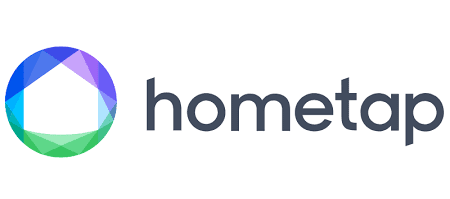
If you're in a situation where you have a significant amount of home equity, you may have heard about a reverse mortgage in addition to a few common options to help you access that equity. These include a home equity loan and a home equity loan of credit (HELOC). But if you're 62 or older, you may consider a reverse mortgage.
A reverse mortgage is another way that you can tap your home equity and get cash. Let's analyze how it works and whether they are a good idea to use.
What Is A Reverse Mortgage?
A reverse mortgage is a HELOC alternative that is targeted towards older homeowners who often have completely paid off their mortgage. Like the name suggests, instead of making monthly payments to a lender, the lender makes monthly payments to the homeowner. In order to qualify, borrowers must be at least 62 or older.
Reverse mortgages can be useful if you're a senior who has a significant amount of equity in your home and want to use it to supplement your monthly retirement income.
When you apply, your home serves as collateral, just as it would with a conventional mortgage.
When you move out or die, the loan becomes due and any proceeds from the home's sale are used to pay off the loan. Payments from a reverse mortgage are not considered taxable by the IRS.
How Do They Work?
There are three different kinds of reverse mortgages—single-purpose, proprietary, and home equity conversion mortgages.
Home Equity Conversion Mortgages (HECMs) are by far the most common type. HECMs are sometimes referred to as FHA reverse mortgages because they are backed by the United States Department of Housing and Urban Development.
The bank will take out a new loan on your property, minus any fees or lender charges associated with the origination of the loan.
You can choose to take the proceeds in a variety of ways. Here are a few of the most common ways to take the money:
Lump sum: The bank gives you the entirety of the proceeds all at once, up front.
Annuity: You can take equal monthly payments as long as at least one of the borrowers lives in the home.
Term payments: Rather than an annuity, you can take monthly payments for a fixed term (such as 10 or 20 years). Choosing term payments will likely mean your monthly payments will be higher than with an annuity.
Line of credit: Rather than taking payments, you can instead set up a line of credit where you can borrow money as needed, and only pay interest on the amount borrowed.
How To Get A Reverse Mortgage
Applying works in much the same way as applying for a conventional mortgage. You can work with a lender or mortgage broker of your choice. Just as with a regular mortgage, it's a good idea to shop around and compare rates and terms from different lenders. Keep in mind that if you want to apply for an HECM, you will need to apply through an FHA-approved lender.
When you apply, you are often required to go through counseling. The purpose of the counseling appointment is to make sure that you understand all of the costs, responsibilities and payment options that come with a reverse mortgage. The counselor should also make sure that you are aware of what will happen to the mortgage when you die or if you move out of the home.

Is It A Good Idea?
It's important to mention that there are scams to watch out for, when it comes to these kinds of mortgages. Scammers often prey on older homeowners who may not be as capable to protect themselves. Be aware and stay vigilant of anything that seems too good to be true or feels off.
A reverse mortgage may be right for some homeowners but not the best move for others. One thing to think about is how much money you really need to retire. That can help you figure out if the additional income fits into your retirement plans.
When it makes sense:
- Having significant equity in your home
- Both you and your spouse being 62 or older
- No plans to move out of your home
When it doesn't make sense:
- You may consider moving in the future
- Aren't sure if you'll be able to keep up with maintenance, taxes, and insurance
- Your kids expect to inherit your house after you die
Header |  |  | |
|---|---|---|---|
Rating | |||
Equity Access | Up to $400,000 | Up to $350,000 | Up to $500,000 |
Term | 10 years | 30 years | 30 years |
Fees | 3% | 3-5% | 3% |
Cell |
The Bottom Line
A reverse mortgage is one way to access the equity in your home, as long as you're 62 or older. The lender will provide you with access to your home equity in exchange for monthly payments on the loan.
You can take the proceeds in several different ways, including a lump sum, monthly payments for a fixed term, or an annuity, as long as you live in the home.
While reverse mortgages can be advantageous for some, they're not right for everyone. Make sure to talk to your financial advisor to see if it makes sense for you.

Robert Farrington is America’s Millennial Money Expert® and America’s Student Loan Debt Expert™, and the founder of The College Investor, a personal finance site dedicated to helping millennials escape student loan debt to start investing and building wealth for the future. You can learn more about him on the About Page or on his personal site RobertFarrington.com.
He regularly writes about investing, student loan debt, and general personal finance topics geared toward anyone wanting to earn more, get out of debt, and start building wealth for the future.
He has been quoted in major publications, including the New York Times, Wall Street Journal, Washington Post, ABC, NBC, Today, and more. He is also a regular contributor to Forbes.
Editor: Claire Tak